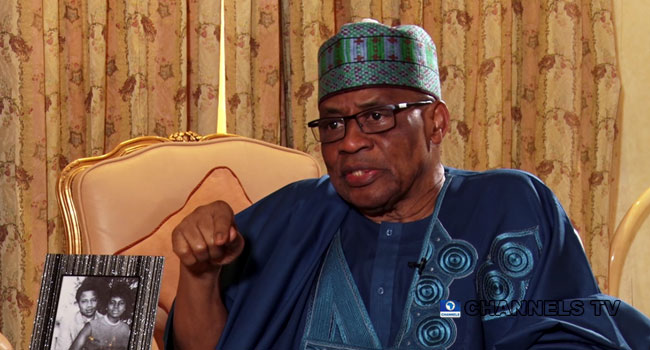Former Head of State, General Ibrahim Babangida (retd.), has offered a deeply personal and revealing account of the 1985 foiled coup allegedly masterminded by his childhood friend, General Mamman Vatsa. In his autobiography, A Journey of Service, launched on February 20, 2025, Babangida grapples with the agonizing dilemma he faced: choosing between a lifelong friendship and safeguarding the stability of the Nigerian nation. The book provides a rare glimpse into the inner workings of military leadership and the heavy burdens of command.

Chapter 10, aptly titled “The Challenges of Leadership,” delves into the intricate web of events leading up to the arrests and subsequent trial of Vatsa and his co-conspirators. Babangida recounts how initial whispers of Vatsa’s alleged plot reached him as “a series of rumors,” dismissed at first as mere envy fueled by their close relationship, nurtured since their formative years. However, the persistent nature of the rumors and the potential ramifications for national security compelled him to act.
Driven by a sense of duty, Babangida consulted with trusted military colleagues, including Generals Nasko, Garba Duba, and Wushishi, seeking their counsel and insights. These consultations underscored the gravity of the situation and the need for a thorough investigation. Covert inquiries were initiated by military and intelligence agencies to ascertain the veracity of the claims.
The investigations, according to Babangida, unearthed “incontrovertible evidence” indicating that Vatsa had indeed provided financial incentives to officers to facilitate the coup operation. This revelation was a profound shock to Babangida, who struggled to reconcile the image of his lifelong friend with the alleged act of treason.
Babangida writes, “With our experience in the few months in government and the benefit of hindsight based on previous rumors, I determined that the best way to tackle the rumors about a possible Vatsa coup was by confronting the principal suspects.” He confronted Vatsa directly, relaying the rumors and seeking clarification. General Nasko also intervened, attempting to elicit the truth from Vatsa, who vehemently denied any involvement in the alleged plot.
Despite Vatsa’s denials, the covert investigations continued relentlessly. The evidence mounted, painting a damning picture of Vatsa’s alleged involvement. Babangida reveals that Vatsa had allegedly disbursed funds to several officers to support the coup attempt. One such officer, Lt-Col. Musa Bitiyong, reportedly received N50,000 for his participation.
The unfolding events presented Babangida with an excruciating moral and professional dilemma. He was forced to weigh the bonds of friendship against his sworn duty to protect the nation. Ultimately, he concluded that the evidence against Vatsa was overwhelming and that decisive action was necessary to prevent further destabilization. The decision to proceed with the arrests and trial of Vatsa and his co-conspirators was one of the most difficult of his career, a decision that would forever shape his legacy.
The autobiography promises to shed further light on the complexities of this pivotal moment in Nigerian history, offering a nuanced perspective on the events that transpired and the motivations behind the key players involved.